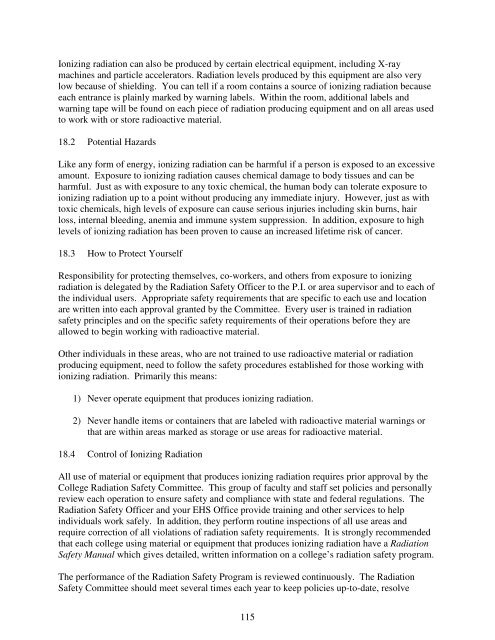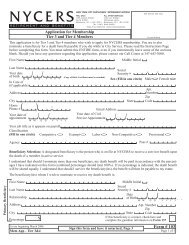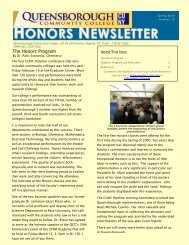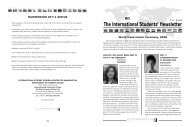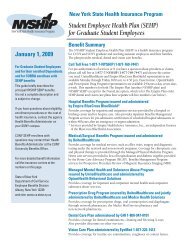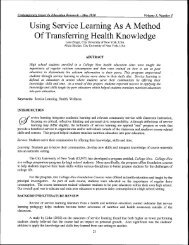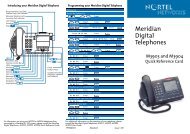Chemical Hygiene Plan - Queensborough Community College ...
Chemical Hygiene Plan - Queensborough Community College ...
Chemical Hygiene Plan - Queensborough Community College ...
Create successful ePaper yourself
Turn your PDF publications into a flip-book with our unique Google optimized e-Paper software.
Ionizing radiation can also be produced by certain electrical equipment, including X-ray<br />
machines and particle accelerators. Radiation levels produced by this equipment are also very<br />
low because of shielding. You can tell if a room contains a source of ionizing radiation because<br />
each entrance is plainly marked by warning labels. Within the room, additional labels and<br />
warning tape will be found on each piece of radiation producing equipment and on all areas used<br />
to work with or store radioactive material.<br />
18.2 Potential Hazards<br />
Like any form of energy, ionizing radiation can be harmful if a person is exposed to an excessive<br />
amount. Exposure to ionizing radiation causes chemical damage to body tissues and can be<br />
harmful. Just as with exposure to any toxic chemical, the human body can tolerate exposure to<br />
ionizing radiation up to a point without producing any immediate injury. However, just as with<br />
toxic chemicals, high levels of exposure can cause serious injuries including skin burns, hair<br />
loss, internal bleeding, anemia and immune system suppression. In addition, exposure to high<br />
levels of ionizing radiation has been proven to cause an increased lifetime risk of cancer.<br />
18.3 How to Protect Yourself<br />
Responsibility for protecting themselves, co-workers, and others from exposure to ionizing<br />
radiation is delegated by the Radiation Safety Officer to the P.I. or area supervisor and to each of<br />
the individual users. Appropriate safety requirements that are specific to each use and location<br />
are written into each approval granted by the Committee. Every user is trained in radiation<br />
safety principles and on the specific safety requirements of their operations before they are<br />
allowed to begin working with radioactive material.<br />
Other individuals in these areas, who are not trained to use radioactive material or radiation<br />
producing equipment, need to follow the safety procedures established for those working with<br />
ionizing radiation. Primarily this means:<br />
1) Never operate equipment that produces ionizing radiation.<br />
2) Never handle items or containers that are labeled with radioactive material warnings or<br />
that are within areas marked as storage or use areas for radioactive material.<br />
18.4 Control of Ionizing Radiation<br />
All use of material or equipment that produces ionizing radiation requires prior approval by the<br />
<strong>College</strong> Radiation Safety Committee. This group of faculty and staff set policies and personally<br />
review each operation to ensure safety and compliance with state and federal regulations. The<br />
Radiation Safety Officer and your EHS Office provide training and other services to help<br />
individuals work safely. In addition, they perform routine inspections of all use areas and<br />
require correction of all violations of radiation safety requirements. It is strongly recommended<br />
that each college using material or equipment that produces ionizing radiation have a Radiation<br />
Safety Manual which gives detailed, written information on a college’s radiation safety program.<br />
The performance of the Radiation Safety Program is reviewed continuously. The Radiation<br />
Safety Committee should meet several times each year to keep policies up-to-date, resolve<br />
115


